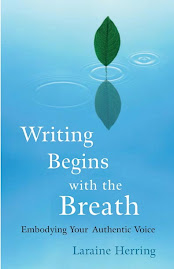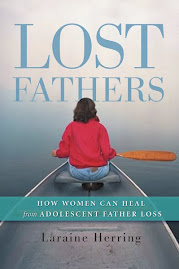Copyediting matters. It's the point in the book publishing process where someone who doesn't know you, doesn't know your work, and hasn't read the manuscript before, gets involved. This person is usually a grammarian. This person is usually very logical. Very precise. Very concise. Very anti-metaphor. Very, in other words, not me. I can't imagine how difficult it is to move into work you don't know and try to make it clearer on the sentence level. It's also unimaginable how difficult it is for the author to get back the manuscript and try to figure out what has happened.
I've spent most of this week working on the copyedits for The Writing Warrior. Here's how it works. The publisher sends you two copies of the text. One copy has all the strike-throughs, changes, and notes to you and to the editor from the copyeditor. One copy is clean, so it's easier to read. However, you, as the author, have to not only read the clean copy, but read what changes the copyeditor did so that you can determine if they made it better, restructured for no apparent reason, or made it worse. And of course, the copyeditor is human too, so there are mistakes they make. You have to catch them. For example, the copyeditor added a sentence to one of the writing exercises I wrote using the word "sown." Only he used the word "sewn", which is the wrong word. It was just a simple mistake, but I had to catch it. Adding the sentence made sense. Using the wrong word made no sense. Another example: I had used the word "grad" in reference to grad school. The copyeditor changed it to "grade." That little e changes everything!
In my experience, about 85% of the copyedit suggestions make great sense and make the text better. The other 15% take hours to figure out what they did, if I want them to have done it, and if not, how to fix it. By this point, I can't see the manuscript clearly. I've marked it up. The publisher marked it up. Besides, I wrote it in the first place, so I know I can't see it clearly. Yet, I'm being asked to be the final eye on it. And of course, they want it back in ten business days.
Sometimes I feel like the LOLcat at the top of the blog. I feel like the copyeditor thinks my work has no validity or organization. I believe it too, because none of it makes any sense to me anymore, and I know that no matter how diligently I work at this, how many times I take breaks during this process, there will still be something no one saw, or a mistake that didn't get caught, or a meaning that got shifted. And then the book will be in print. That's just the way of it. I also have to resist trashing it all and starting over because I've re-read it so many times that it feels derivative, boring, self-absorbed, and just plain not valid. I have to recognize that as a false response, a judgment, and an attachment.
Reviewing one's own copyedits requires all the tools I write about in the book I'm reviewing the copyedits on (thank you, universe). I have to watch my ego saying, "No! Stupid copyeditor! You have no idea what I meant and it's entirely your fault!" I have to watch my laziness say, "It's good enough. Just do what they suggested and leave it alone." I have to watch my pride saying, "It was perfect as it was." But I also have to pay attention to the writing itself and to my relationship with it. I have to defend what I intended and I have to stand behind what I feel is not only correct, but a stronger sentence. Sometimes the most concise sentence creates the worst, clunkiest rhythm. I care more about the way a sentence and paragraph sound than I do about their conciseness. The end of a chapter should feel like an end, not just be a correct content ending. It's like the end of a song. You know it because you feel it.
And so, a full twenty-two hours later (no, not in a row), I am sending the manuscript back to the publisher. I accepted and agreed with about 85% of the suggestions. I told them to put back my original text in about 15% of the document. I have to believe in my own word choices. I really do select every verb (not in a blog, necessarily!) and look at the sentence structure. If I've used passive voice by the time it reaches a copy editor's stage, I meant to use it. If I said "voices of my characters" instead of "characters' voices", that's what I meant because I wanted the emphasis on "voices" not characters, and its placement in the sentence is what ensures that emphasis.
But throughout it all, I must practice the detachment I teach. I must practice the humility and the grace I write about. I must remember that everyone who has read this book is trying to make it better, and I must remember that this book is better because of everyone who has helped birth it. And ultimately, when I see that garbled sentence that did make sense to me, but that I can see is ever so much stronger (indeed - what was I thinking??) because the copyeditor moved everything around, I am indeed grateful that there are people like this -- linear, logical, concise -- people not so much like me, so that I, and my writing, can be brought into greater balance.












2 comments:
and then there is the public relations department, marketing and the design people...say no more! I seem to be doing much of the work that the p.r. person once did. I know both presses are down to the bone because of money fears. One of my editors is editing 15 books.
It all sukes...no wait, make that sucks. your pal, Belle
I prefer la gata being my copy editor hahaha...but of course I hear ya loud and clear...tu amiga, Almaluz **I've been recing it to students already...
Post a Comment